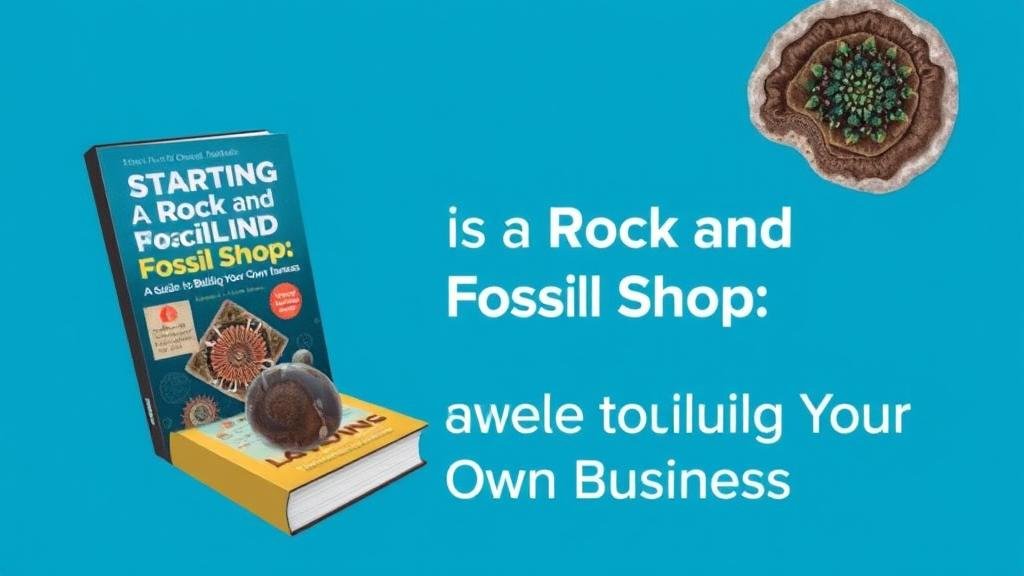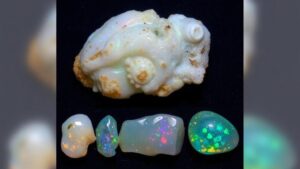Starting a Rock and Fossil Shop: A Guide to Building Your Own Business
Starting a Rock and Fossil Shop: A Guide to Building Your Own Business for Rockhounds and Mineral Collectors
Building a rock and fossil shop can be a fulfilling endeavor for rockhounds and mineral collectors alike. This guide examines essential steps to launch your business, covering key aspects such as market research, sourcing products, and marketing strategies. With an emphasis on practical tips, this guide is tailored to enthusiasts ready to turn their passion into profit.
Understanding Your Market
Before you embark on your entrepreneurial journey, it’s vital to conduct thorough market research. Understanding your target demographic is crucial to success. According to the American Geological Institute, approximately 60% of adults express a strong interest in natural history and related fields, indicating a broad potential customer base.
Consider the following steps in assessing your market:
- Identify your target audience. Are they casual collectors, serious hobbyists, or educational institutions?
- Analyze competitors in your area. What products do they offer, and at what price points?
- Survey potential customers to gauge interest in specific rocks, fossils, and services.
Sourcing Products
Sourcing high-quality rocks, minerals, and fossils is essential for building a reputable shop. A well-curated collection can help differentiate your business from competitors. Here are a few strategies for sourcing products:
- Attend mineral shows and gem fairs. e events are excellent opportunities to connect with wholesalers and fellow collectors.
- Use online platforms. Websites like eBay, Etsy, and specialized mineral shops can be valuable sources for eclectic and rare items.
- Forge relationships with local geologists, museums, and universities. They can provide insights into sourcing and may be willing to sell or lend items to your shop.
Establishing Your Business
Once you have a clear understanding of your market and sourced your products, the next step is formalizing your business. This includes several critical components:
- Business Structure: Determine whether to operate as a sole proprietorship, LLC, or corporation. Each has different implications for taxes, liability, and administrative responsibilities.
- Licenses and Permits: Research local regulations regarding retail licenses and permits. In some areas, you may need specific permissions to sell certain types of fossils.
- Location: Choose a location accessible to your target audience. Areas near educational institutions or natural parks may attract more visitors.
Marketing Your Shop
Effective marketing strategies are necessary for attracting and retaining customers. Use both online and offline methods to maximize your reach:
- Use social media platforms like Instagram and Facebook to showcase your products and engage with rock enthusiasts.
- Create content for a blog on your website discussing geological findings, rock identification tips, and other relevant topics that appeal to collectors.
- Host workshops or informational seminars related to geology or fossil identification to draw in local interest.
Creating a Unique Shopping Experience
To stand out in a competitive market, consider offering unique elements that enhance the customer experience:
- Educational Elements: Provide informational displays about each specimens history, geological significance, and proper care.
- Customized Services: Offer services such as rock and fossil identification, appraisals, or custom jewelry design using purchased specimens.
- Membership Programs: Consider introducing membership opportunities that grant exclusive access to sales, events, or special collections.
Practical Tips for Collectors
As an expert in minerals and fossils, providing practical advice to your clientele not only fosters loyalty but positions your shop as a trusted resource. Here are some tips to share:
- Educate customers on how to properly care for their items, including cleaning and storage methods.
- Encourage them to take detailed notes when collecting items. Record the GPS coordinates, dates, and geological context to enhance their collections provenance.
- Discuss the importance of ethical collecting practices, such as respecting land use and preservation laws.
Conclusion
Starting a rock and fossil shop requires a blend of passion, research, and strategic planning. By understanding your market, effectively sourcing products, and creating engaging customer experiences, you position yourself for success. As you embark on this rewarding venture, remember that continuous learning and community engagement will help you thrive in the exciting world of geology and mineral collecting.
Whether you’re a seasoned rockhound or a newcomer to the field, taking the time to build a robust and thoughtful business plan will pave the way for a successful and sustainable rock and fossil shop.



